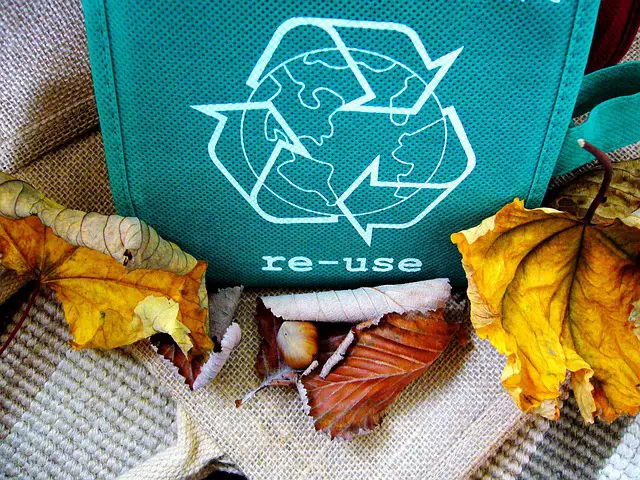In the guide below, we outline some of the potential pros and cons of reusing and repurposing waste.
Summary – Pros & Cons Of Reusing & Repurposing Waste
Firstly, What Is Reusing & Repurposing?
Potential Pros
Reuse Can Take Many Forms
Secondhand & Pre-Used Markets & Demand Are Already Well Established
There Might Be Economic & Social Benefits Of Reuse, & They Might Passed Onto More People Than Recycling
Might Be Sustainability Benefits To Reuse Compared To Other Waste Management Options
Reuse Might Save Time, Money, Energy & Resources Compared Specifically To Recycling
Reuse Might Be Available To A Wider Range Of People Than Recycling
Potential Cons
Some Items & Materials Can’t Practically Be Reused Or Repurposed
Some Pre-Used Items May Have Various Issues To Consider
The Economics Of Reuse & Repurposing May Not Always Be As Competitive Or As Feasible As Other Options
Some Forms Of Reuse & Repurposing May Not Be As Sustainable As Other Options For Managing Items, Materials & Waste
Potential Pros Of Reusing Waste
Reuse Can Take Many Forms
For example, some products are designed and manufactured to be reusable products (reusable bottles, bags, etc)
But, other products and items can be reused in a number of ways, such as – servicing, repairing, restoring or refurbishing, selling pre-used (re-sale), donating, swapping, renting and leasing, and more.
Secondhand & Pre-Used Markets & Demand Are Already Well Established
For example, in some countries, secondhand seller’s marketplaces, swap communities, secondhand stores, charity and donation stores, and other places where products and items can be reused exist, and are used frequently.
There Might Be Economic & Social Benefits Of Reuse, & They Might Passed Onto More People Than Recycling
Reusing products and materials may create an income stream and sometimes employment for some people.
With this being the case, it helps contribute to the economy.
There’s both social and economic benefits to consider here.
Because reuse is accessible to a wider range of people, the benefits might also flow on to a wider range of people.
Other examples of potential economic benefits might include, but aren’t limited to:
– Saving money on reusable products and packaging
– Saving money on alternative waste management collection and processing
– Saving money on manufacturing new materials and products
Might Be Sustainability Benefits To Reuse Compared To Other Waste Management Options
– Using Less Energy, & Other Inputs & Resources
Compared to recycling, reuse (where the product doesn’t have to immediately be sent off for processing) may not use as much energy and other inputs in some instances.
Additionally, compared to sending waste to landfill, reuse helps keep resources in circulation longer. This may help address issues like resource depletion in some ways.
– Contributes To Other Sustainability Concepts
Or, a circular economy, by keeping resources in the economy for longer
– Lower Overall Sustainability Footprint
If a product’s useful lifespan can be extended (by repair, secondhand use, or something else) before becoming waste, the resources and other sustainability factors used to make that product can be averaged out over a greater number of years, and therefore the sustainability footprint might be lower.
Reuse Might Save Time, Money, Energy & Resources Compared To Other Options
Like for example, recycling, energy recovery, or even manufacturing the product new.
If we take recycling and energy recovery for example, there’s both the collection and processing of materials and waste to consider.
wikipedia.org indicates that ‘… both the financial and environmental costs of simple refurbishment of some products [are] a fraction of original manufacturing costs’
Reuse Might Be Available To A Wider Range Of People Than Recycling
Because reuse doesn’t require the save money and resource investment as recycling, it can make re-used products available to a wider range of people – specifically people without the needs to send waste and materials to expensive recycling facilities
Potential Cons Of Recycling Waste
Some Items & Materials Can’t Practically Be Reused Or Repurposed
Some items and materials have no suitable reuse or repurposing application, because of properties and traits, or some other factor.
These items and materials might be better off being recycled, sent to landfill, composted, or managed in some other way.
Some Pre-Used Items May Have Various Issues To Consider
As one example, someone shopping for a pair of jeans as a secondhand store may not have as many suitable options as they would buying new jeans.
As another example, pre-used electronics may be older models and may not be capable of running the latest software or functionalities in some instances.
As another example, the standards and regulations for refurbished products in some countries may not protect the consumer’s purchase as much as they would in other countries. They may lead to lower quality or problematic used products in some instances.
The Economics Of Reuse & Repurposing May Not Always Be As Competitive Or As Feasible As Other Options
For example, it can be more expensive sometimes to repair, restore, refurbish, maintain, generally re-use, or generally repurpose some items and products, compared to disposing of them and making new products.
As another example, some incentive programs and reuse regulations may cost more money or lead to a net loss, compared to if resource management was left to the free market.
Some Forms Of Reuse & Repurposing May Not Be As Sustainable As Other Options For Managing Items, Materials & Waste
One example of this is where the energy, inputs and resources required to maintain or restore an item, material or form of waste is more than what the footprint would be to make it new.
The same might apply in some instances for repurposing.
Sources
1. Various ‘Better Meets Reality’ guide
2. https://en.wikipedia.org/wiki/Reuse
3. https://en.wikipedia.org/wiki/Repurposing
','' ); } ?>